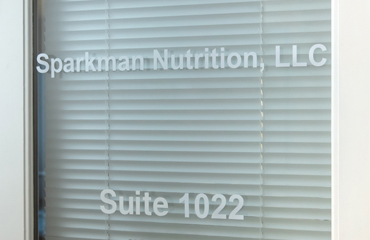Americans spend over $7.5 billion a year on vitamins. That’s a lot of money down the toilet, so to speak. Since many supplements are easily excreted in urine, excess intake usually isn’t harmful, but that’s not always the case.
How many times have you heard ‘I’ll be fine since I take my vitamins’ or ‘I should take more vitamins’? Vitamin and mineral supplementation has drastically increased over the past several years. According to the NIH, about 50% of Americans use dietary supplements regularly.
These statistics are not surprising considering media surrounding supplement promotions promise to magically cure diseases and make claims to ‘increase energy,’ ‘stimulate brain function,’ ‘reverse cancer,’ and much more. Interestingly, research has refuted many of these claims and has found that consuming some supplements, especially in excess, may actually be harmful. For instance, research done by the National Cancer Institute, found higher risks of prostate cancer in men who take more than one multivitamin daily. Additionally, the Iowa Women’s Health Study found that taking many daily supplements has little benefit and may actually result in increased mortality risk.
As mentioned earlier, the body will excrete unneeded amounts of many vitamins in the urine, but some vitamins and minerals can be toxic when taken in high enough doses. Because vitamin, mineral, and herbal supplements are considered food, there is no standardization requirement for supplements and, often, adequate consumer information is lacking. Here is something else to consider: The most expensive option may not always be the best option. Many companies promote having the best, purest, most concentrated, highest quality, etc. product but any reputable lab should offer a quality product. Often a high price is more related to sales structure (pyramid marketing for example,) than to the product itself.
Don’t go toss out those bottles just yet though. Most experts agree that taking one daily multivitamin is a good idea—especially for those who regularly don’t get enough fruits, veggies and whole grains. Just be sure not to use your multivitamin as a ‘safety net’ or an alternative to consuming a healthy diet.
Also, supplementation with some vitamins and minerals is necessary for specialized needs such as folate during pregnancy, calcium for delaying progression of osteoporosis, and much more. Even in these instances, individuals need to consider how much of the specific nutrient should be taken and over what time frame. Every person has different needs and vitamin and mineral supplementation should be discussed with a clinician, and should only be considered for a strong, medically based reason. Additionally, it is important to consider that it may be possible to increase certain vitamin and mineral consumption through diet. Carefully comparing typical intake through diet with amount of specific nutrients recommended or adjusting diet to include more specific nutrients would better cater to individuals’ needs than taking various supplements for preventative reasons or taking a blanket dose of something due to a deficiency.
Regardless of whether or not supplements are being used, a nutritious, well-balanced diet should be a priority for any individual who wants to lead a healthy lifestyle. If you are unsure whether or not to take specific supplements, the dietitians at Sparkman Nutrition can help.
Goodman, Brenda, MA. ‘Do Vitamin Supplements Make Sense?’ WebMD Health News. 27, Feb. 2013. http://www.webmd.com/vitamins-and-supplements/news/20130225/do-vitamin-supplements-make-sense?page=3
Mayo Clinic: ‘Supplements: Nutrition in a pill?’http://www.mayoclinic.com/health/supplements/NU00198
Image courtesy of Paul/FreeDigitalPhotos.net



